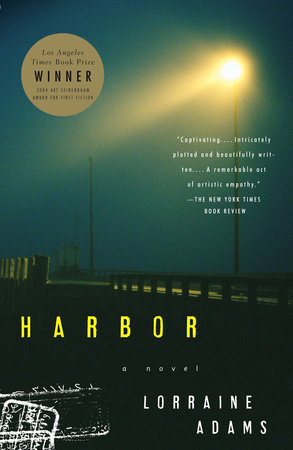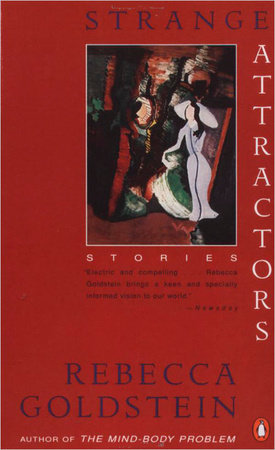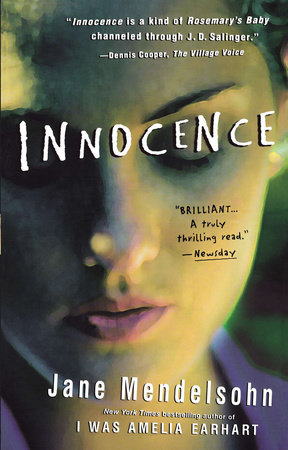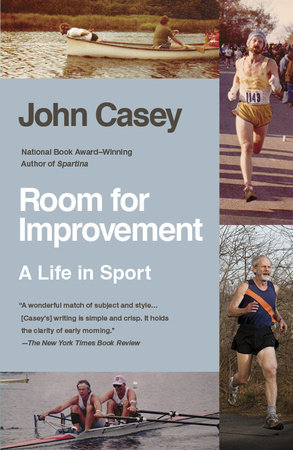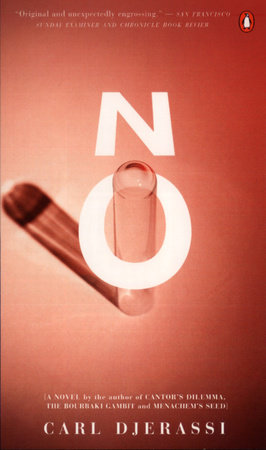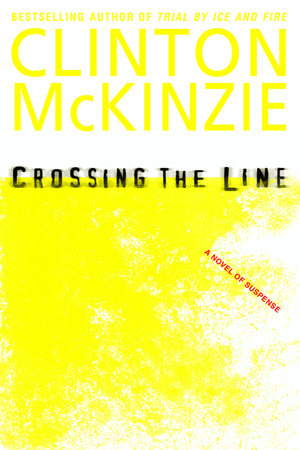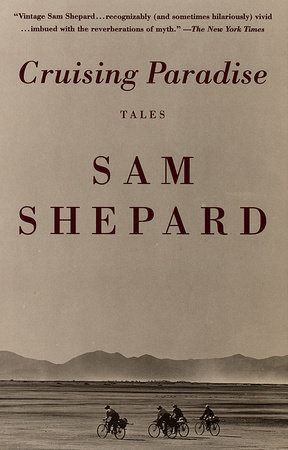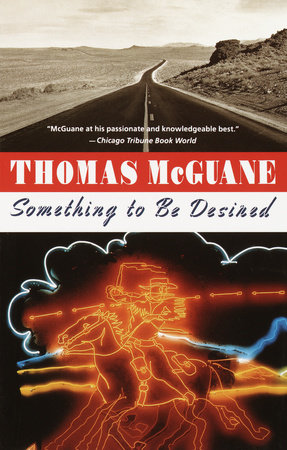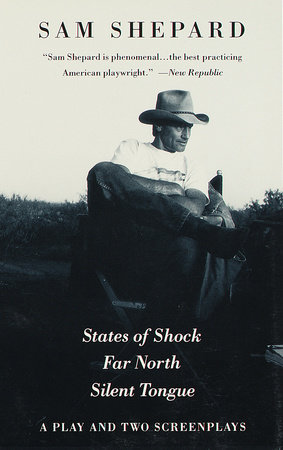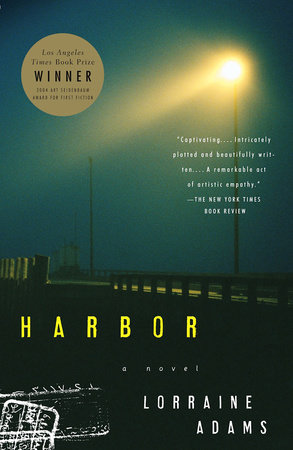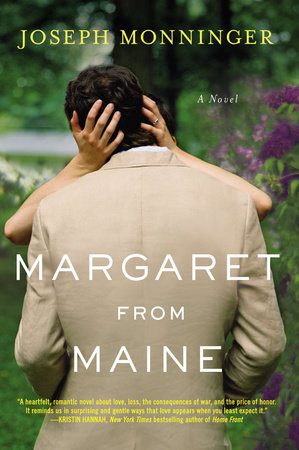Author Q&A
A Conversation with Lorraine Adams
Q: Before writing Harbor, you worked as a reporter for the Washington Post for 11 years. Is it true that Harbor grew out of investigative reporting you were doing for the Post?
A: Yes. I was assigned by the Post to cover the FBI and Justice Department in 1999. As part of that beat, I wrote about a terrorist plot planned by Algerians in Canada near the turn of the millennium. That conspiracy involved an Algerian who came over the border near Seattle with a trunkload of explosives he intended for Los Angeles International Airport. The FBI believed that the plot was wider than this young man, and they launched what was then the largest counterterrorism investigation on American soil. The Post assigned me to investigate the FBI probe. It was to be an anatomy of a counterterrorism dragnet.
I began by looking for Arab Americans who had been arrested by the FBI in the weeks after the young man’s arrest. I immersed myself in the Algerian communities of the United States and Canada. I wrote a story focusing on one Algerian who had pled guilty to conspiracy to support terrorism, using his case as a way to explore how the FBI handled counterterrorism investigations. The FBI was overly dependent on technology such as wire-tapping instead of human intelligence. Its rudimentary understanding of Muslim and Arab politics often led it to place innocent people under surveillance while the guilty, too difficult to track, went undetected.
Q: Tell us about your protagonist, Aziz.
A: Aziz flees to the United States as a stowaway in desperate circumstances. He is one of the people in America that we see but don’t think about much–he gets by as a gas station attendant, a dishwasher, a house painter, a deli worker. He has the usual grab bag of immigrant deficits–no English, no legal identity, a homeland lost, a permanent sense of dislocation. What makes his story unlike others about exile is terrorism. Terrorism drove him out of Algeria; it finds him in the presumed sanctuary of America. I don’t want to get too deeply into the plot, so I’ll leave it at that.
What I can say is that I began writing Aziz’s story after the Sept. 11th attacks. He grew out of my frustrations with the conventions and limitations of newspapering. So much of what I knew about the Algerians I had met was a radical departure from the prevailing journalistic narratives I had read about young Arab men drawn to terrorism. I had a childhood friend die in the twin towers, and I saw the World Trade Center burning in the minutes just after the attacks, so I was also motivated by a desire to try to understand what to so many seemed beyond understanding.
Q: How did your work as a reporter help you as a novelist?
A: Journalism has permitted me to invade people’s privacy. It opened worlds otherwise closed. I was schooled in the experiences of other people in a way that was distinctive. When you know a friend, you can’t report out their lives, interview their critics and admirers, check what they say against written records. You don’t get to say, “Hey, you said this, but your brother says something else.” Reporting is a circling over time that acquaints you with what someone wants to believe about who they are and what they appear to be to others. My reporting often elicited confessions and confidences that people did not want published. I honored them; those unwritten disclosures accumulated in me.
Most of the young men I tracked for the terrorism project were distrustful at first. I was too. There were language difficulties. There was prejudice against women. One told me later he thought I was an undercover FBI agent. But I drank enough tea on living room floors and hung out enough at kitchen tables, gas stations and front stoops that I began to see them, and they me, in ways neither of us expected. I started taking Arabic classes; their English developed. So much–their intonations, the suits they shoplifted, the women they loved, the poetry they read–I saw or heard. Word traveled in the Algerian community that I wanted to hear their stories, not only about how the FBI treated them, but what they left in Algeria, and who they believed among them were terrorists and who was not. I got calls from federal jails, pizza parlors, pay phones–as far away as Vancouver and as close as Brooklyn.
Q: Harbor opens with Aziz hiding in a tanker hold from Algeria to Boston for 52 days, jumping into the icy waters of the Boston harbor and swimming to shore. The title refers to the Boston harbor–is this common in real life? What is life like for Algerians to make them choose such harsh conditions to flee?
A: It was common for Algerians during the 1990s to stowaway on tankers headed for Boston harbor. Youth unemployment there had reached 41 percent. Aziz’s was a generation of ennui, disappointment, and disenchantment. After more than a century of rule by France, Algeria became independent in 1962. Algeria, like Egypt and other Arab countries in the post-colonial period, devolved into one-party rule under a corrupt elite. In the face of economic misery, the government failed to provide basic social services. It was in this atmosphere that Islam, which was a unifying force during the revolution against colonial rule, reemerged. Its attraction was a practical one at first: it was the mosques that subsidized food and housing. The devout and increasingly impoverished middle class, betrayed by the ruling elite, gravitated to a new Islamic party. Drawn too were urban and campus youth–Aziz’s contemporaries. The governing class, to pacify growing unrest and demonstrations, legalized the party. The party began modestly by winning local elections, but then in 1991 national balloting, a strong showing led the military to intervene, outlaw the party, and postpone the second round of elections, which the party was predicted to win.
A decade of civil war followed. With party leaders in exile or imprisoned, the remains of the movement advocated violence, arguing democratic means had failed to bring change. The military government responded in kind. As in any civil war, civilian casualties were rampant. The government called these attacks terrorism. The militant Islamic elements accused the government of torture and murder. Women, children and the elderly were the victims of atrocities committed by both sides. Amnesty International has documented human rights abuses committed by security forces, armed groups and militias armed by the state. The government acknowledges that between 100,000 and 150,000 civilians died between 1992 and 2003, but restrictions on information have made it impossible to confirm details about the identity of the victims or how they died.
Q: Why is the story set in Boston, where the suspected terrorist cells in the novel are located (instead of New York or D.C. for example)? In what time period is it set in relation to the actual terrorist attacks of 9/11/01?
A: This is a work of fiction, so there is no exact date for the events described, but they are set sometime between 1993 and early 2001. Boston is the setting for several reasons. I think of Boston as the cradle of liberty, a hallowed place in the idealized American history of the nation’s founding. Boston harbor is familiar to every school child as the location of the Boston tea party, a protest against colonial subjugation. These young men jumped into the same harbor out of a desperation for freedom not unlike the motivating spirit of the American experiment.
Q: In probably the first novel of its kind since the terrorist attacks on 9/11/01, Harbor delves into the lives of suspected terrorists–where and how they live, what they think of America, among others. What is life like for them in America? Do they find it better than Algeria?
A: There are Algerians from many strata of society in the United States. Some are stowaways. Some are petty criminals. Some are middle class, highly educated and have stable jobs and families. One of the goals of Harbor is to avoid generalizations in favor of the individual. There are many young Muslim Arab men depicted in Harbor; they are each singular. They create the life they lead. They are not inexorable victims of circumstance. The imaginative force inherent in anyone constructing a life is more bluntly revealed when someone is a refugee, but is common to all of us. Having said that, one of Harbor’s central predicaments is that what these young men fled in Algeria finds them in the United States.
Q: Is this the goal of the novel–for the reader get a unique view of the people we call "terrorists"? (In other words, you show them in a much different light than we’ve ever seen them before–what are you hoping the reader takes away? Personally, as I read it, I sympathized with almost all of the characters–and found the ending quite ironic, especially that the circles around the subway stations translated into, for the FBI, targets for terrorist attacks.)
A: My goal is not to defend terrorists, but to attempt to give voice to the interior lives of young Muslim Arabs who may or may not become terrorists. It is something of an exploration, yes, of that set of common essences people tend to call “their humanity” when talking about marginalized and despised populations. Some excommunicate terrorists from the human. But terrorists, as the cliché has it, are made not born. They are with us and among us. I believe in the value of trying to understand that which threatens us. Understanding is not a substitute for action. It is, however, part of any enlightened rational mind.
Q: Without giving too much away, a part of the story centers around a U-Stor-It locker. Could you sum up why this is so important in the novel?
A: In the simplest terms, the U-Stor-It is where the characters stockpile what they need to conceal. Its contents are alternately and simultaneously comical, sinister, plain to the eye and unknowable. You’ve heard of a cabinet of wonder–the 17th century forerunner of the modern museum, a repository of oddities. We are even more aware of the Freudian subconscious, a storehouse of unexamined, unsocialized repressions. The U-Stor-It of Harbor incorporates these ideas. It functions also as the presumed locus of all the answers to the characters’ questions about who they are, who their friends are and who their enemies might be.
